Baby Indian Brown Roofed Turtle for Sale – Exotic Pets | Blog Post
$349.99
Discover the Baby Indian Brown Roofed Turtle, a 2-3 inch chestnut brown turtle with cherry blushed cheeks and silver-rimmed eyes. Perfect for turtle enthusiasts!
Category: TURTLES FOR SALE
The **Indian Brown Roofed Turtle** (*Pangshura smithii*) is an attractive and unique species known for its characteristic roof-like shell shape. These turtles, native to parts of India, Nepal, and Bangladesh, are popular among reptile lovers due to their manageable size, beautiful markings, and easy care requirements. As aquatic turtles, they make great pets for both beginners and seasoned enthusiasts. If you’re considering adding a baby Indian Brown Roofed Turtle to your collection, this guide will provide everything you need to know about their care, habitat, and how to **buy baby Indian Brown Roofed Turtle for sale** from trusted sources like **NewYorkReptiles.com**.
Introduction to the Baby Indian Brown Roofed Turtle
The **Indian Brown Roofed Turtle** is a small to medium-sized aquatic turtle known for its slightly domed, roof-like carapace, which gives the species its common name. These turtles have a charming appearance, with a shell that ranges in color from dark brown to olive green, often featuring intricate patterns that become more defined with age. The plastron (underbelly) is typically lighter, with a yellow or cream tone.
Despite their relatively small size, these turtles are highly active and enjoy swimming and exploring their environment, making them fascinating pets to observe. Their peaceful nature and ease of care have made them increasingly popular among turtle enthusiasts worldwide. Let’s dive into what makes the Indian Brown Roofed Turtle such a fantastic pet, and how you can ensure they thrive in your care.
Key Characteristics of the Indian Brown Roofed Turtle
– **Size**: Baby Indian Brown Roofed Turtles usually measure around 2 to 3 inches in length, with adults growing up to 6 to 9 inches.
– **Coloration**: Their carapace is typically a rich brown or olive color, with attractive patterns that differ from one individual to another. Their skin is often a mix of brown and olive with yellowish lines.
– **Habitat**: These turtles are found in rivers, ponds, and wetlands in India and surrounding regions, where they thrive in slow-moving, fresh water.
– **Behavior**: Indian Brown Roofed Turtles are active, curious creatures. They love swimming, basking in the sun, and exploring their surroundings.
Why Choose a Baby Indian Brown Roofed Turtle?
Many people choose to **buy baby Indian Brown Roofed Turtles for sale** because they are easy to care for, making them an excellent choice for both beginners and experienced reptile keepers. Their moderate size allows for easier handling and habitat management compared to larger species. Additionally, they are relatively hardy and adaptable to different environments, provided their basic needs are met.
Their friendly, inquisitive nature also makes them a joy to watch as they interact with their environment. Whether you’re setting up an indoor aquarium or a small outdoor pond, these turtles are a captivating addition to any reptile collection.
Setting Up the Ideal Habitat
Before bringing home a **baby Indian Brown Roofed Turtle**, it’s essential to set up a habitat that mimics their natural environment. Proper habitat setup is crucial to their health and well-being. Here’s what you need to consider:
### 1. **Aquarium Size**
For a baby turtle, a 20 to 30-gallon tank is usually sufficient, but as they grow, you’ll need to upgrade to a larger tank—around 50 to 75 gallons—for adult turtles. Indian Brown Roofed Turtles are active swimmers, so ensure the tank provides plenty of space for movement and exploration. You may also want to consider a pond setup for larger, outdoor enclosures.
### 2. **Water Quality**
Clean, fresh water is crucial for the health of your baby turtle. Invest in a good filtration system that can keep the water clean and free of harmful bacteria. Indian Brown Roofed Turtles prefer shallow water, but it should be deep enough for them to swim comfortably. The water should also be warm, with temperatures ranging from 75°F to 85°F.
Regular water changes are essential to maintain good water quality. You should change about 25% of the water each week to ensure it remains clean and healthy for your turtle.
### 3. **Basking Area**
Like most turtles, Indian Brown Roofed Turtles need access to a basking area where they can dry off and soak in heat and UVB rays. A turtle dock or a sloping rock can provide the perfect basking spot. The basking area should be equipped with a heat lamp that maintains a temperature of around 85°F to 90°F.
### 4. **Lighting**
Providing the right lighting is essential for the health of your turtle. Turtles need UVB light to help synthesize vitamin D3, which is crucial for calcium absorption and healthy shell development. Place a UVB light over the basking area, and keep it on for 10-12 hours a day to replicate natural sunlight.
### 5. **Substrate and Decorations**
The bottom of the tank can be lined with smooth river rocks, large pebbles, or sand. Avoid using small gravel, as turtles may accidentally ingest it, leading to health problems. You can also add aquatic plants, driftwood, and rocks to create a natural-looking environment and provide hiding spots for your turtle.
### 6. **Temperature and Humidity**
Maintaining the right temperature and humidity levels is crucial for the health of your **baby Indian Brown Roofed Turtle**. In addition to a warm basking area, the water should be kept at a stable temperature of around 75°F to 80°F. Use a submersible water heater to regulate water temperatures, especially in colder climates.
Indian Brown Roofed Turtles do not require high humidity levels like some other reptiles, but you should ensure that the basking area is dry to prevent shell rot or other health issues.
Diet and Feeding
Indian Brown Roofed Turtles are omnivores, meaning they eat both plant and animal matter. In their natural habitat, they feed on a variety of aquatic plants, insects, small fish, and other invertebrates. In captivity, it’s essential to provide them with a varied diet to ensure they get the necessary nutrients for growth and development.
### 1. **Protein Sources**
As babies, these turtles require more protein to support their rapid growth. Offer them a diet rich in protein, including:
– **Commercial Turtle Pellets**: High-quality pellets formulated for aquatic turtles are a great staple.
– **Live or Frozen Insects**: Crickets, mealworms, and bloodworms are excellent sources of protein.
– **Small Fish**: Feeder fish can also be given occasionally as a treat.
### 2. **Vegetation**
As your turtle grows, you should introduce more plant matter into its diet. Offer fresh greens such as dandelion greens, collard greens, and romaine lettuce. You can also provide aquatic plants like duckweed, water lettuce, and anacharis, which turtles enjoy nibbling on.
### 3. **Calcium Supplementation**
To ensure healthy shell growth, sprinkle a calcium supplement on your turtle’s food two to three times a week. This helps prevent issues like metabolic bone disease, which can result from calcium deficiency.
### 4. **Feeding Schedule**
Baby turtles should be fed once a day, while adult turtles can be fed every other day. Make sure to remove any uneaten food from the water to prevent contamination and maintain water quality.
Behavior and Temperament
This Turtles are generally friendly and active creatures, making them great pets for observation. They are naturally curious and will often explore their enclosure, especially when they sense food nearby. However, like most turtles, they can be a bit shy and may retreat into their shells when they feel threatened or stressed.
These turtles are not aggressive and can be handled gently, but it’s essential to minimize handling to reduce stress. They do best when left to interact with their environment on their own terms. If you plan to keep multiple turtles in one tank, make sure there is plenty of space and hiding spots to avoid territorial behavior.
Common Health Issues
While Indian Brown Roofed Turtles are relatively hardy, they can be prone to certain health issues if not properly cared for. Here are some common health problems and how to prevent them:
### 1. **Shell Rot**
Shell rot is a bacterial or fungal infection that occurs when a turtle’s shell is exposed to unsanitary conditions or remains wet for extended periods. To prevent shell rot, ensure your turtle has a dry basking area and keep the tank clean with regular water changes.
### 2. **Respiratory Infections**
Respiratory infections can develop if the water or air temperature is too cold. Symptoms include lethargy, nasal discharge, and difficulty breathing. Ensure your turtle’s environment stays warm, and if symptoms arise, consult a reptile veterinarian immediately.
### 3. **Vitamin A Deficiency**
A poor diet lacking in variety can lead to vitamin A deficiency, which may cause swelling around the eyes and other health issues. Providing a balanced diet with leafy greens and occasional supplements can help prevent this.
Where to Buy Baby Indian Brown Roofed Turtles for Sale
When looking to buy, it’s essential to choose a reputable seller who prioritizes the health and well-being of their animals. At **NewYorkReptiles.com**, we offer healthy, captive-bred that are carefully raised in optimal conditions before finding their new homes.
Buying from a trusted source ensures you receive a healthy, well-cared-for turtle, with the necessary guidance to set up a proper habitat and care regimen.
Conclusion
The **baby Indian Brown Roofed Turtle** is a captivating and low-maintenance pet that’s ideal for reptile enthusiasts of all experience levels. With their manageable size
Be the first to review “Baby Indian Brown Roofed Turtle for Sale – Exotic Pets | Blog Post” Cancel reply
Related products
TURTLES FOR SALE
$149.99
TURTLES FOR SALE
Rated 5.00 out of 5
$274.99
TURTLES FOR SALE
$299.99
TURTLES FOR SALE
$149.99
TURTLES FOR SALE
Rated 5.00 out of 5
$249.99
TURTLES FOR SALE
$2,600.00
TURTLES FOR SALE
Caramel Pink Albino Red Ear Slider Turtle – Exotic Pets for Sale
$1,199.99




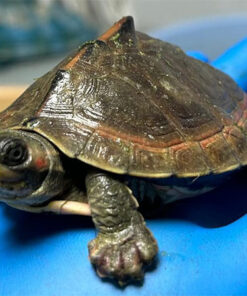
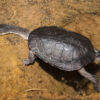

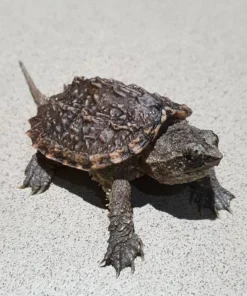
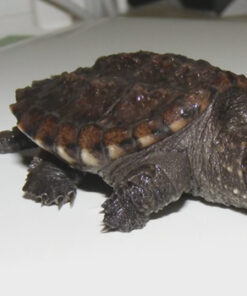
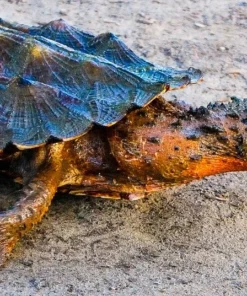
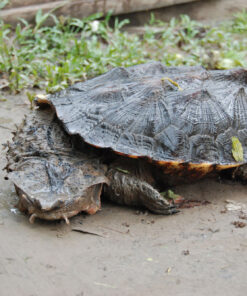



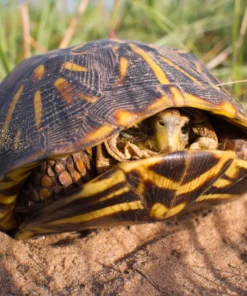
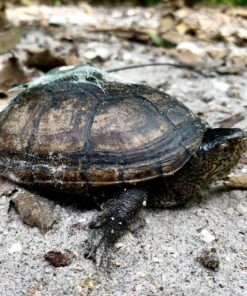
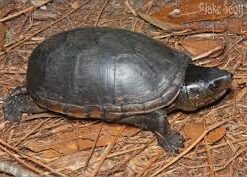
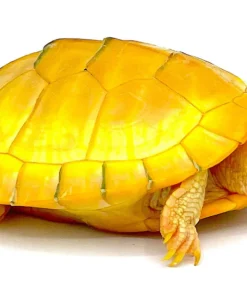





Reviews
There are no reviews yet.